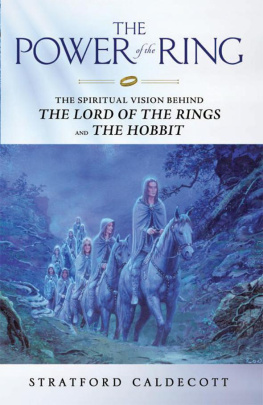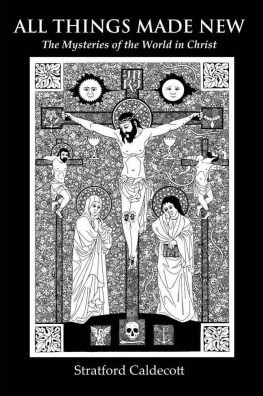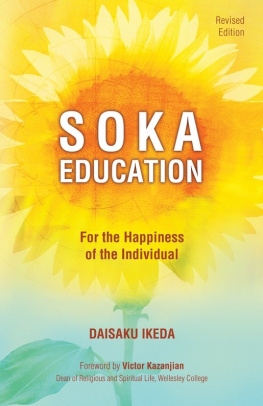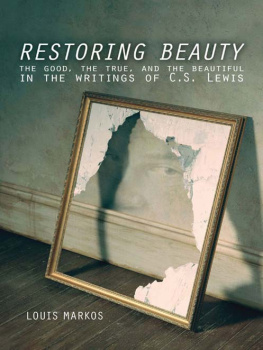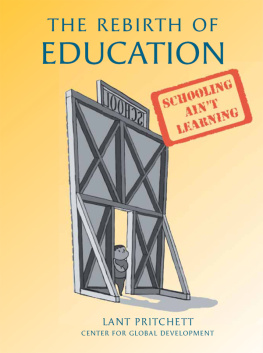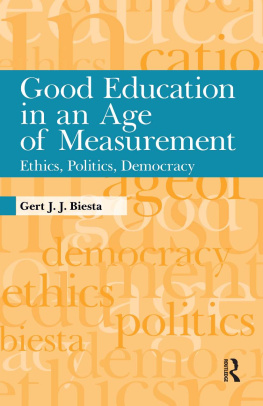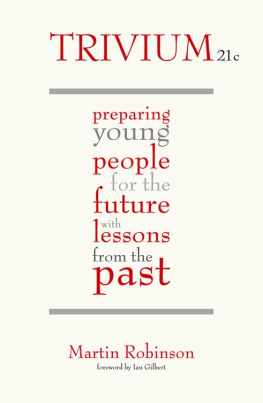Beauty in the Word
To my family
STRATFORD CALDECOTT
Beauty in the Word
Rethinking the Foundations of Education

First published in the USA
by Angelico Press
Stratford Caldecott 2012
Foreword Anthony Esolen 2012
All rights reserved
No part of this book may be reproduced or transmitted, in any form or by any means, without permission.
For information, address:
Angelico Press, 4619 Slayden Rd., NE
Tacoma, WA 98422
www.angelicopress.com
Library of Congress Cataloging-in-Publication Data
Caldecott, Stratford.
Beauty in the word: rethinking the foundations of education / Stratford Caldecott.1 st ed.
p. cm.
Includes bibliographical references and index.
ISBN 978-1-62138-004-7 (pbk: alk. paper)
eISBN 978-1-62138-019-1 (ebook)
1. EducationPhilosophy. 2. Education, HumanisticGreat Britain. 3. Language artsGreat Britain. 4. Catholic SchoolsGreat Britain. I. Title.
LB 14.7.C345 2012
370.01dc2 2012013698
Cover Image: Fra Angelico,
The Sermon on the Mount, c. 1440
Cover Design: Cristy Deming
CONTENTS
An Education in FreedomThe Specific Mission of a Catholic SchoolThe Heart of the Book
Revival of the TriviumCentering Education on the ChildTo Be a ChildAttentionA Catholic Philosophy of Education
Naming: The First Human TaskMan the MediatorRecollecting and the Spirit of TraditionAnti-Tradition and AnamnesisDefending the Art of MemoryThe Hall of FireMusic of Creation
An Honorable ArtEncouraging ThoughtDialectics for ChildrenThe Search for TruthFaith and ReasonIn Search of FoundationsEvolutionDialectic
Word of God, Breath of GodEthosWho Am I, Again?Recovery of FreedomPoetic FormThe Liturgical Heart
The Other ArtsHistoryDreaming a Catholic School
Cultivating the Moral ImaginationEducation of the HeartCharlotte MasonJohn HoltThe Holy Family
Acknowledgments
THIS BOOK would not have happened but for another that I published under the title Beauty for Truths Sake (Brazos, 2009). That was a study of the classical Quadriviumthe four mathematical or cosmological arts that once formed an essential part of a liberal education, preparing the student for the study of philosophy and theology. My book started with an interest in the symbolic and aesthetic qualities of numbers and shapes (I hasten to add unaccompanied by any expertise in mathematics or geometry), and became a kind of plea or even a manifesto for the reintegration in education of the arts and sciences. It was well received, and I was approached to write a sequel that would deal with the three preparatory arts, the Trivium or liberal arts of language. That project turned into the present book, which might have been subtitled Why the Trivium is Far from Trivial. Together the two books are intended to draw inspiration from the seven liberal arts for the purpose of rethinking the foundations of Catholic education in our own time. They are, I should stress, a work in progress.
I must therefore particularly thank Fr Dominic OConnor and his brother Greg OConnor for commissioning this book as part of their broader UK-based project intended to produce resources for education and the new evangelization. Without them it would simply not have been written. I want to thank also my new publishers, John Riess and James Wetmore, whose enthusiasm and encouragement at just the right time meant and continues to mean a great deal to me. Many others have given useful feedback on the book at different stages, including Jim Maroosis, Matthew Milliner, Fr Dominic OConnor, Roy Peachey, Margaret Atkins, and Carol Bowlingand of course those who read the book for the publisher, including Fr Aidan Nichols OP, Fr James V. Schall SJ, and Dr Cyrus P. Olsen III, and especially the author of the Foreword, Anthony Esolen.
The reader is urged to refer to the authors website for further discussion of the philosophy and reform of education at http://beauty-in-education.blogspot.com, including practical aspects which have only been touched on in this volume. As mentioned, this book is part of a wider, ongoing project, and I am excited at the prospect of helping to develop over the next few years, if God permits and with the assistance of teachers and parents on both sides of the Atlantic, other books and supporting materials for homes, schools, and parishes.
STRATFORD CALDECOTT
Foreword
Anthony Esolen
I SHOULD LIKE to introduce Stratford Caldecotts wonderful and much needed book with an anecdote, followed by a brief survey of the wasteland. A few years ago I was at a book sale, at a local library in Canada. I hadnt found anything I liked, so a young girl came up to me to ask if she could help. She was a worker at the library, and was about to enter the most esteemed college in eastern Canada. What are you interested in? she asked.
That was a hard question for me to answer, since we didnt really speak the same language. I could have said, Perceptive works in philosophy and theology, or Great European novels, but I dont think that would have advanced the conversation. I finally said that I was a college professor, and when she asked me what I taught, I mentioned Dante and the Divine Comedy.
I dont mean any disrespect for your favorite author, she said, smiling, but Ive never heard of him.
I could multiply this anecdote many times over. From what my freshmen now tell me, public schools in the United States have virtually abandoned the study of literature written before 1900, and their neglect of poetry in general is more thoroughgoing still. Some few of them have read perhaps a sonnet by John Donne, typically Death, Be Not Proud, or a piece of the prologue of Chaucers Canterbury Tales. Sometimes theres a play by Shakespeare, a Macbeth or Romeo and Juliet, taught, of course, without any reference to the Christian faith that formed the world wherein Shakespeare and his audience found their home. Its not as if their place were taken by the quintessentially American mythographers and poets. Hawthorne rarely makes it into the room; Melville and Longfellow more rarely still. Huckleberry Finn has fallen victim to political sensitivities, despite Mark Twains heroic championing of the goodness and wisdom of the slave, Jim. Robert Frost is forgotten, even in New England. James Fenimore Cooper is forgotten, even in New York. I am informed by my British colleagues that if I entertain some quaint notion that Wordsworth and Coleridge are remembered in England, I am seriously mistaken.
And yet somehow that neglect isnt the worst of it. When I find out what they do read, Im struck by what can only be described as a perverse refusal to assign literature of any real beauty. There are the political novels, the exploration of what is ugly and tawdry in the modern world, and books assigned to open the mind by exposing it to a favorite perversion, with a dash of obscenity or pornography to season the dish. The same faults may be found in the forgetting of history, and the turn towards the ephemera of current events; or in the neglect of the logic of language, grammar, for the benefit of self-expression, preferably of the daintily crude variety. I am tempted to conclude that there are only two things wrong with our schools: what they dont teach our children, and what they do.
That is where the criticism of our schools usually begins and ends. I dont wish to deny the validity of that criticism; it is scandalous that children in England will not know who Thomas Becket was, or that children in America will not know what happened at Yorktown. But as Stratford Caldecott so beautifully shows in his much-needed work, we suffer the consequences of a more fundamental error still. We do not know what or how to teach children, because we do not know what a child is, and we do not know what a child is, because we do not know what man isand Him from whom and for whom man is.
Next page

